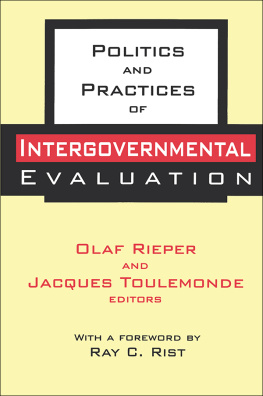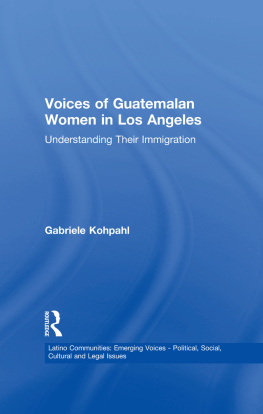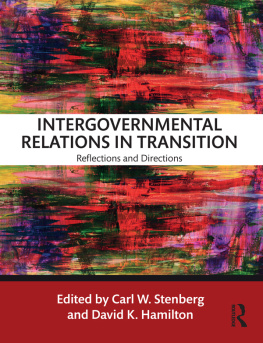An extremely valuable book for those who are supposed to deal with this, so far poorly addressed but particularly important, complex and challenging issue of decentralization.
Bernhard May, Former Teamleader of the GTZ Support for Decentralization Measures (SfDM) Project in Indonesia
The authors not only provide theoretical perspectives and an overview of best practices but have managed to integrate detailed case studies into the book; academic books rarely drill down to such real world detail. Im sure this will be a major contribution to the literature.
Blane Lewis, Crawford School of Public Policy, The Australian National University, Australia
The authors have produced a much needed book, useful to students, researchers and practitioners. There have been few sources available to learn about functional assignment; the book does much to fill this knowledge gap.
Agus Dwiyanto, Gadjah Mada University, Indonesia
Scholars and practitioners concerned with multilevel governance will find this comprehensive analysis of functional assignment to be exceptionally helpful. In particular, the book will likely be indispensable for anyone in developing countries involved with multilevel structural reform. It provides thoughtful and practical approaches to answering this crucial question Who is going to do what?
Andrew Sancton, Professor Emeritus of Political Science, The University of Western Ontario, Canada
The much awaited book addresses a gap in the literature and will help policy-makers and practitioners with the design of processes and achieving greater conceptual clarity and consistency of functional assignments.
Claudia Buentjen, Principal Public Management Specialist, Asian Development Bank, Manila, Philippines
This publication by Gabriele Ferrazzi and Rainer Rohdewohld is sorely needed to encourage and guide decentralization reforms in Asia and elsewhere. It is the first book that gives functional assignment a proper and comprehensive explanation and thus fills a gap in the academic and practitioners literature.
Christoph Beier, Vice-Chair of the Management Board of GIZ (Deutsche Gesellschaft fr Internationale Zusammenarbeit GmbH, Eschborn/Bonn), Germany
This book not only constitutes a very useful addition to the growing literature on decentralization and multi-level governance in countries of the Global South, it is much more than that; an elaborate and practical guide for policy-makers conceiving reforms in the field of subnational government as well as a detailed tool for international development partners. It is most diversified in its concrete analysis and proposals based on most extensive cooperation experience in South Asian countries. Last but not least, this book is free from any normative bias on how to do it exactly. It leaves the final choice to the national level, both governmental and societal. This approach alone makes it a distinct and sublimely rich contribution to the field.
Hans F. Illy, University of Freiburg i.Br., Germany
Emerging Practices in Intergovernmental Functional Assignment
Attaining the benefits of (especially fiscal) decentralization in government remains an enduring challenge, in part because the re-arrangement of public functions across levels of government has often been carried out poorly.
This book aims to provide a firmer conceptual basis for the re-arrangement of public functions across levels of government. In doing so, it offers practical advice for policy-makers from developing and emerging countries and development cooperation practitioners engaged in such activity. Combining a theoretical approach for intergovernmental functional assignment with an in-depth analysis of real-life country cases where functional assignment (FA) has been supported in the context of international development cooperation, it underscores the common technical and political challenges of FA, and also demonstrates the need to expect and support country made and context-specific solutions to FA processes and results. Examples are drawn from a number of developing/transition countries from the Asia-Pacific region, Africa and the OECD, which outline and suggest advisory approaches, tools, principles and good practices and approaches.
This text will be of key interest to scholars, students, policy-makers and practitioners in public policy, decentralization, local governance studies, public administration and development administration/studies.
Gabriele Ferrazzi is Adjunct Professor at the School of Environmental Design and Rural Development, University of Guelph, Canada. He has worked for over 20 years as a consultant on decentralization and administrative reform projects of relevance to functional assignment supported by German development cooperation (GIZ) and other development partners.
Rainer Rohdewohld is a Senior Decentralization Policy Advisor from the German development cooperation (GIZ), with more than 25 years of work experience on administrative reform, decentralization reforms/local governance and capacity development issues in Asia (Indonesia, Cambodia, India, Pakistan, Nepal) and West Africa (Ghana). He has worked for a range of multilateral and bilateral development cooperation agencies, such as the Asian Development Bank (ADB), UNDP and the Swiss Agency for Development Cooperation (SDC).
Routledge Studies in Federalism and Decentralization
Series Editors: Paolo Dardanelli
Centre for Federal Studies, University of Kent, UK
and John Kincaid
Lafayette College, USA
The series publishes outstanding scholarship on federalism and decentralization, defined broadly, and is open to theoretical, empirical, philosophical, and historical works. The series includes two types of work: first, it features research monographs that are substantially based on primary research and make a significant original contribution to their field. Second, it contains works that address key issues of policy-relevant interest or summarize the research literature and provide a broad comparative coverage.
1 Presidents, Governors, and the Politics of Distribution in Federal Democracies
Primus Contra Pares in Argentina and Brazil
Lucas I. Gonzlez
2 Consolidation Policies in Federal States
Conflicts and Solutions Dietmar Braun, Christian Ruiz-Palmero and Johanna Schnabel
3 Ethnic Conflict in Asymmetric Federations
Comparative Experience of the Former Soviet and Yugoslav Regions
Gorana Grgi
4 Emerging Practices in Intergovernmental Functional Assignment
Gabriele Ferrazzi and Rainer Rohdewohld
Formerly Routledge Series in Federal Studies, edited by Michael Burgess and Paolo Dardanelli, Centre for Federal Studies, University of Kent, UK
This series brought together some of the foremost academics and theorists to examine the timely subject of regional and federal studies, which since the mid-1980s became key questions in political analysis and practice.
Minority Nations in Multinational Federations
A comparative study of Quebec and Wallonia
Edited by Min Reuchamps
Comparative Federalism and Intergovernmental Agreements
Analyzing Australia, Canada, Germany, South Africa, Switzerland and the United States
Jeffrey Parker
Federalism and Ethnic Conflict in Ethiopia
A Comparative Regional Study
Asnake Kefale
Federal Democracies
Edited by Michael Burgess and Alain-G. Gagnon
The Case for Multinational Federalism
Beyond the All-encompassing Nation












